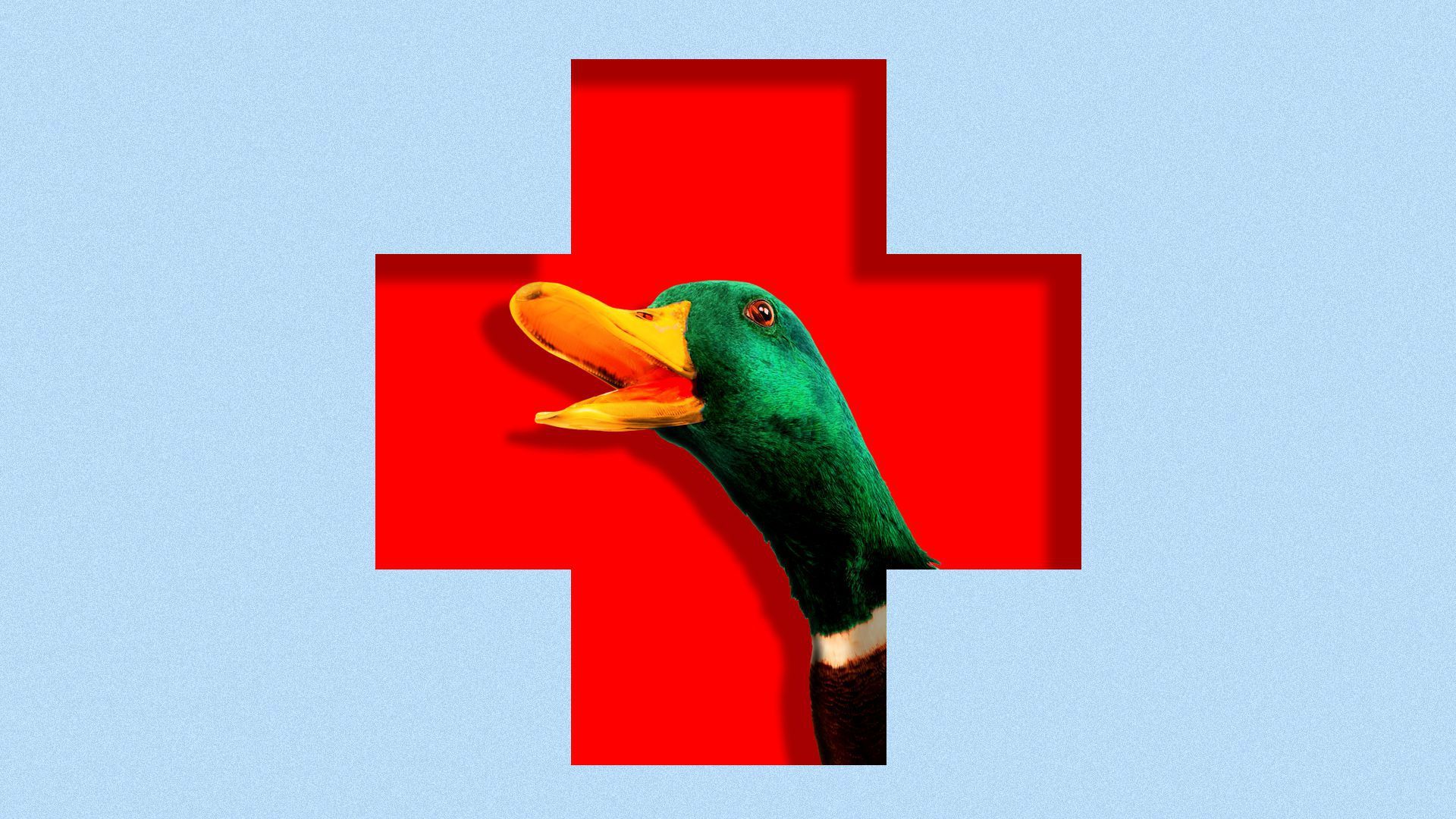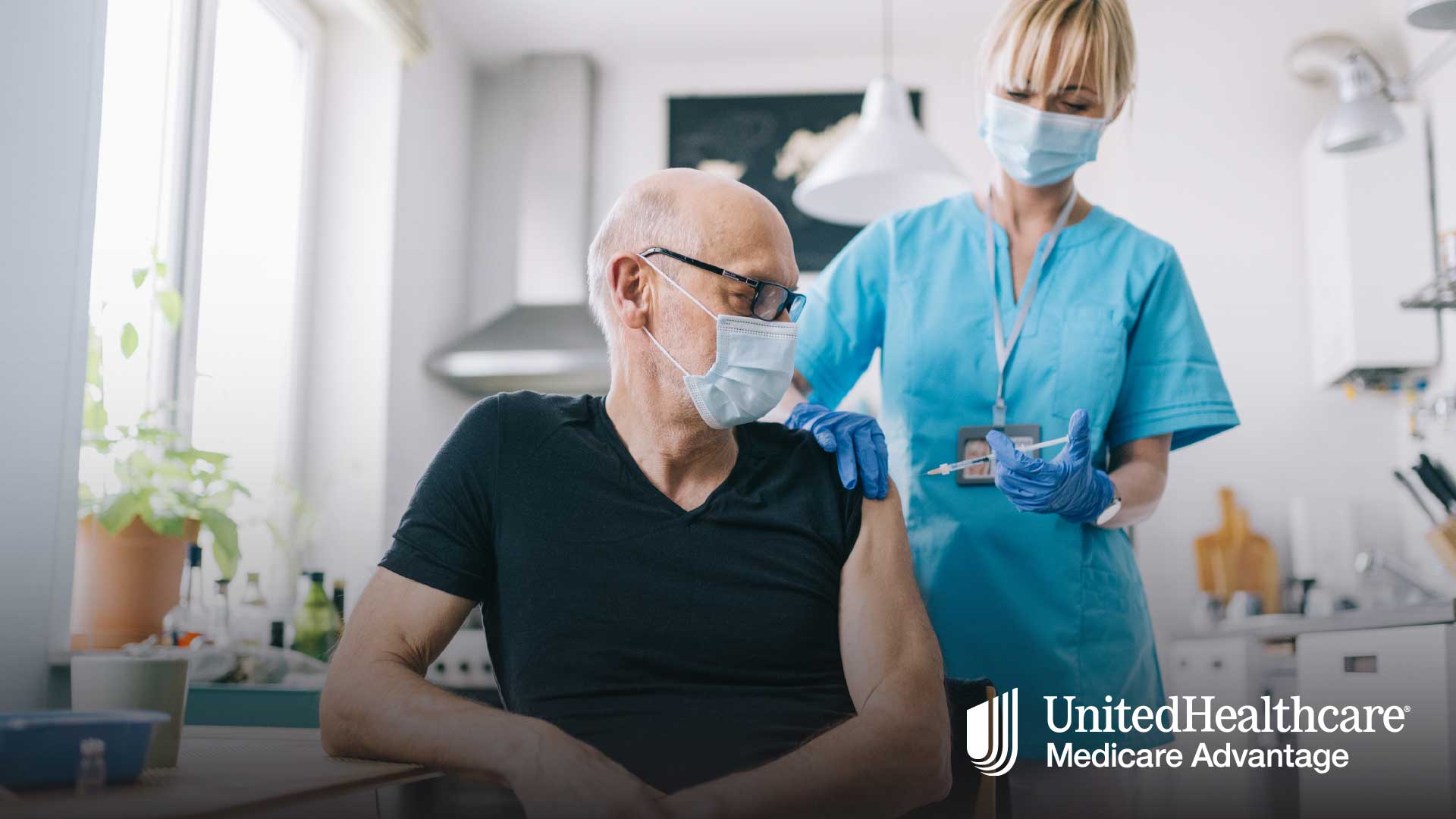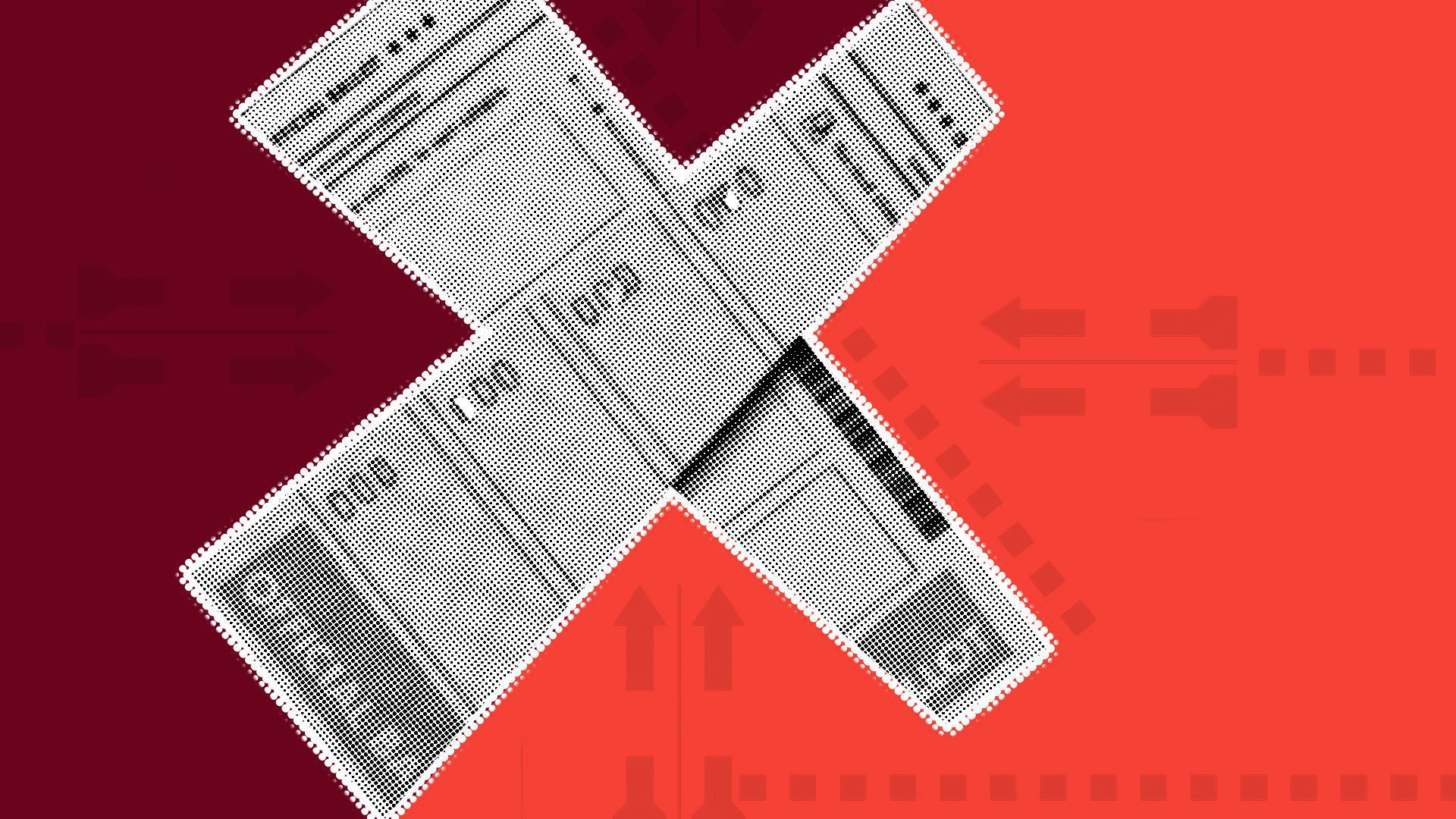| |
| |
| |
| Presented By UnitedHealthcare |
| |
| Axios Vitals |
| By Tina Reed · Nov 14, 2022 |
| Happy Monday, Vitals readers. Today's newsletter is 745 words or a 3-minute read. 🎰 1 quick thing: I'll be sending some dispatches from Las Vegas this week where the HLTH 2022 health tech conference just kicked off. - The first thing I've noticed? Pandemic protocols are over — even among the health types. We got hand sanitizer freebies at registration, but there was no required COVID testing at the door or vaccine requirement like last year— and very few chose to wear masks.
|
| |
| |
| 1 big thing: Health systems eye real estate moves |
 |
|
| Illustration: Annelise Capossela/Axios |
| |
| Health systems facing economic headwinds and the aftereffects of the pandemic are taking a closer look at divesting or squeezing more value out of their real estate holdings. Why it matters: Real estate can account for up to 40% of a health system's balance sheet and also represent a major chunk of some communities' commercial real estate inventory. Decisions to pull back could swing real estate prices or upend local development. The big picture: Inflation is still driving up the costs of just about everything. With the threat of a recession, the bond markets are drying up and cash is tight. - "Health care organizations are absolutely right now really pulling back on capital and being very, very careful," Kaufman Hall managing director Eric Jordahl told Axios.
- The surge in telehealth is softening demand for medical office space, especially in lower-acuity settings like emergency care centers, experts say.
State of play: Some health systems are looking to get creative, such as renegotiating deals with landlords for less square footage over a longer lease period or identifying underused clinical space and either mothballing it or repurposing it for more productive uses, Johnson said. - Some are putting plans on hold, like South Dakota-based Sanford Health, which is holding off on a Minnesota hospital project, citing uncertain times.
- Carilion Health also postponed the construction of a major new mental health care facility in Roanoke, Va., citing negative financial impacts from the pandemic, the Roanoke Times reported.
Go deeper. |
    |
| |
| |
| 2. The lame duck health care agenda |
 |
|
| Illustration: Sarah Grillo/Axios |
| |
| As midterm election results keep trickling in, the lame-duck Congress is gearing up to confront a packed health care agenda, Axios' Victoria Knight, Peter Sullivan and Maya Goldman report. Why it matters: For months, health care interests have been lobbying hard for gifts to be included in a year-end deal. This is where the rubber meets the road. What we're hearing: The Axios' Health Care Pro team spoke with lobbyists and aides about what is most (and least) likely to make it through the lame duck. - Among the things that'll probably sail through? Providers will get some — but not all — of the relief they've been seeking from looming Medicare payment reductions, like a scheduled 4% across-the-board PAYGO cut.
- Candidates for a thumbs down? Help for home health providers. Congress isn't likely to throw more aid to the industry after regulators spread out payment cuts for home health over two years.
Go deeper: Learn more about what insiders say looks likely to move in the next several weeks — and what's probably not going anywhere — in Health Care Pro. Sign up here. |
    |
| |
| |
| 3. Traumatic injuries cost insured patients |
| Sustaining a traumatic injury can land patients in significant debt or bankruptcy, even if they have commercial insurance and good credit, a study published in JAMA Health Forum found. Why it matters: Medical costs are the top source of consumer debt in America and are linked to poorer outcomes. This study shows how easily even those with safety nets can quickly fall into financial peril if they get seriously hurt. Details: The study, led by the University of Michigan's Center for Healthcare Outcomes and Policy, cross-linked thousands of claims from an insurer with credit reports between 2019 and 2021. - The researchers found those who had suffered a traumatic injury were 23% likelier to have medical debt in collections, 70% more medical debt in arrears, and a 110% higher bankruptcy rate.
- They found no significant differences regarding credit scores or amount of non-medical debt in collections.
What they're saying: The researchers suggested reducing or eliminating cost-sharing to mitigate financial strain. They also suggested creating means-based deductibles. |
    |
| |
| |
| A message from UnitedHealthcare |
| HouseCalls help prevent health issues among seniors |
| |
 |
| |
| UnitedHealthcare's Medicare Advantage HouseCalls provide preventive care visits in the comfort of seniors' own homes. The highly trained nurses are thorough, spending up to an hour with seniors and following up with doctors to address any issues. Learn more. |
| |
| |
| 4. Nonprofit scores ballot wins in red states |
 |
|
| Illustration: Annelise Capossela/Axios |
| |
| "Because those legislators are refusing to govern on the issues that matter most to voters including health care ... voters are having to take matters into their own hands." — Kelly Hall, executive director of The Fairness Project The non-profit The Fairness Project cemented its status as a key driver of progressive state health policies in red states during the midterms, Axios' Sabrina Moreno writes. - Their wins include ballot questions dealing with abortion rights, Medicaid expansion and medical debt.
|
    |
| |
| |
| 5. While you were weekending |
 |
|
| Illustration: Aïda Amer/Axios |
| |
| 👀 The Biden administration will keep the COVID public health emergency in place at least until mid-January. (CNBC) 👉 Every year, more than 20,000 pregnancies in the U.S. result in a stillbirth, but not all of these tragedies were inevitable. (ProPublica) 🏥 Private equity firms have shelled out almost $1 trillion to acquire health care businesses in deals almost always hidden from regulators. The result: higher prices, lawsuits and complaints about care. (USA Today) |
    |
| |
| |
| A message from UnitedHealthcare |
| Better care with UnitedHealthcare's Medicare Advantage HouseCalls |
| |
 |
| |
| Millions of Medicare Advantage seniors rely on UnitedHealthcare's free HouseCalls program, which brings important preventive care visits into their homes. Our HouseCalls program helps keep seniors out of the hospital, and members give the service a 99% satisfaction rating. |
| |
| Thanks for reading, and thanks to senior editor Adriel Bettelheim and copy editor Nick Aspinwall for the edits. Did someone forward this email to you? Here's how to sign up. |
 | | Why stop here? Let's go Pro. | | |
No comments